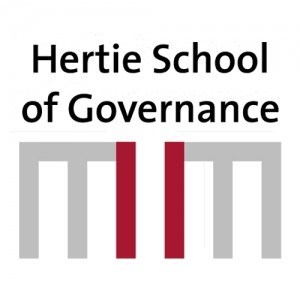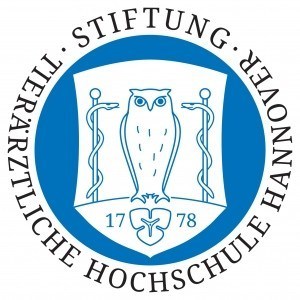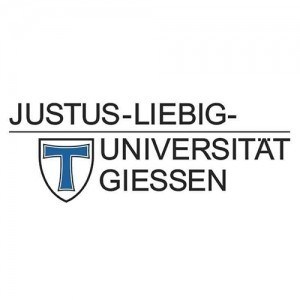Photos of university / #fu_berlin
The TransAtlantic Master Program in Peace and Conflict Studies offered by the Free University of Berlin is a comprehensive, interdisciplinary degree designed to equip students with a deep understanding of the complex nature of conflicts and the strategies needed for their resolution. This program emphasizes both theoretical foundations and practical applications, preparing graduates for careers in international organizations, NGOs, governmental agencies, and research institutions that focus on peacebuilding, conflict prevention, and mediation. The curriculum spans a broad spectrum of topics including conflict theory, peace processes, human rights, security studies, and international law. It integrates global perspectives by fostering collaboration between institutions across North America and Europe, providing students with enriching exchange opportunities and a multicultural learning environment. Students engage in rigorous coursework, participate in seminars led by renowned scholars and practitioners, and undertake empirical research projects that address current conflicts worldwide. The program also encourages the development of critical skills such as conflict analysis, negotiation, diplomacy, and policy advocacy. With a strong emphasis on experiential learning, students might participate in internship placements, field visits, and workshops that enhance their understanding of real-world conflict scenarios. Throughout their studies, participants are encouraged to critically reflect on ethical issues related to peace and conflict, promoting a responsible and inclusive approach to conflict resolution. Upon graduation, students are well-prepared to contribute effectively to peace and conflict initiatives, fostering sustainable development and social justice. The transatlantic aspect of the program highlights the importance of cross-cultural exchange and international cooperation in addressing global challenges, making it uniquely suited for those aiming to pursue a career in international peace and security.
The TransAtlantic Masters Program at Free University of Berlin offers an innovative and interdisciplinary curriculum designed to foster a deep understanding of transatlantic relations, international affairs, and global politics. This program provides students with a comprehensive educational experience that combines theoretical knowledge with practical skills, preparing them for careers in international organizations, diplomacy, policy analysis, and research. Throughout the course of the program, students engage with a wide range of topics, including transatlantic security, economic cooperation, cultural exchanges, and the role of international institutions in fostering peace and stability across the Atlantic region. The curriculum emphasizes critical thinking, analytical skills, and intercultural competence, equipping graduates to effectively navigate complex international environments.
Students benefit from a diverse academic environment, working closely with faculty members who are renowned experts in fields such as European studies, American studies, political science, and international law. The program encourages active participation through seminars, workshops, guest lectures, and collaboration with international partners. Additionally, students have the opportunity to participate in exchange programs and internships that provide real-world experience and foster global networks. The TransAtlantic Masters Program aims to prepare its graduates for leadership roles in governmental agencies, international NGOs, research institutions, and private sector enterprises that operate within the transatlantic sphere. Graduates will gain a nuanced understanding of transatlantic issues, equipped with the analytical tools and practical insights necessary to contribute to international policy development, diplomatic negotiations, and cross-cultural dialogue. The program’s multidisciplinary approach ensures that students are well-rounded and adaptable, capable of addressing the challenges and opportunities presented by global interconnectivity and transatlantic cooperation.
Program requirements for the TransAtlantic Masters Program at Free University of Berlin typically include a combination of academic prerequisites, language proficiency, specific coursework, and project work. Applicants are generally expected to hold a bachelor's degree or an equivalent undergraduate qualification from an accredited institution, preferably in a field related to the program's focus areas. Evidence of proficiency in English is mandatory, often demonstrated through standardized tests such as TOEFL or IELTS, with minimum score requirements set by the university. Some programs may also require a motivation letter detailing the applicant's interest and goals related to the program, as well as letters of recommendation from academic or professional references. Applicants must submit a completed application form along with official transcripts, degree certificates, and proof of language proficiency. Prior research experience or relevant work experience can be advantageous but is not always mandatory. The program emphasizes interdisciplinary coursework, international collaboration, and practical projects, requiring students to participate in seminars, workshops, and group assignments. To graduate, students must successfully complete all coursework, pass exams, and submit a final thesis or capstone project that addresses a topical issue within the program's scope. Additional requirements may include participation in international mobility activities, such as study stays or internships, as the program aims to foster cross-cultural competencies and international networking. The specific criteria and application process can vary slightly each year, so prospective students are advised to consult the official university admissions website to confirm the exact prerequisites and deadlines. Overall, the program seeks highly motivated candidates with a strong academic background, clear professional objectives, and a commitment to international and interdisciplinary perspectives.
The Free University of Berlin offers a variety of financing options for students enrolled in the TransAtlantic Masters Program. Tuition fees are generally not charged for degree programs at the university, as many are publicly funded, making education accessible to a broad range of students. However, students are responsible for personal expenses, including accommodation, meals, study materials, health insurance, and travel costs. To assist students in covering these expenses, the university provides information on external scholarships, grants, and financial aid opportunities.
International students participating in the TransAtlantic Masters Program are encouraged to explore various funding sources. The German Academic Exchange Service (DAAD) offers numerous scholarships for international students studying in Germany, which may be applicable depending on the specific circumstances and eligibility criteria. Additionally, students can seek scholarships from their home country, private foundations, or international organizations that support higher education mobility. The university also provides guidance and counseling services to help students identify suitable funding opportunities and navigate the application processes.
Part-time work opportunities are available for students to supplement their income during their studies. The university's regulations permit international students to work part-time up to 120 full days or 240 half-days per year. Jobs may include on-campus positions, research assistant roles, or internships related to their field of study, which can also provide valuable professional experience. It is important for students to balance their work commitments with academic responsibilities.
Students are advised to plan their finances carefully before embarking on the program. Budgeting for living expenses in Berlin, which is relatively affordable compared to other major European cities, is essential for a successful study period. Students should also consider health insurance costs, which are mandatory for all students in Germany. Many international students obtain their health insurance through statutory providers, which offers comprehensive coverage at reasonable rates.
In conclusion, while the TransAtlantic Masters Program at the Free University of Berlin does not impose tuition fees, students require sufficient financial planning and resourcefulness to cover living expenses and other costs. The university facilitates this process by providing access to scholarships, part-time work options, and financial advice, helping students make their academic journey feasible and successful.
The TransAtlantic Masters Program at the Free University of Berlin is an innovative international degree initiative designed to provide students with a comprehensive understanding of transatlantic relations, diplomacy, international politics, and global policy issues. The program emphasizes cross-cultural exchange and interdisciplinary approaches, preparing graduates for careers in international organizations, governmental agencies, research institutions, and private sector entities operating within the transatlantic space. Students enrolled in this program benefit from a curriculum that combines theoretical knowledge with practical skills, often involving internships, workshops, and collaborative projects with partner institutions across Europe and North America. The program typically spans one or two years, depending on the chosen specialization and structure, including coursework, thesis work, and possibly language training to enhance cross-cultural competencies. Faculty members involved in the program are usually distinguished scholars and practitioners in the fields of international relations, security studies, policy analysis, and diplomatic history, ensuring that students receive a high level of academic instruction combined with real-world insights. The program also encourages international mobility, with exchange semesters or study visits to partner universities in the United States and Canada, fostering a deeper understanding of transatlantic issues through firsthand experience. Graduates of the TransAtlantic Masters are equipped with critical analytical skills, a global outlook, and an extensive network of international contacts that are valuable for future professional pursuits. The university supports students throughout their studies with dedicated academic advising, career services, and opportunities for participation in conferences and seminars focused on transatlantic affairs. The program's aim is not only to educate students about transatlantic relations but also to produce knowledgeable leaders capable of shaping policy and promoting international cooperation in a rapidly changing global environment.









